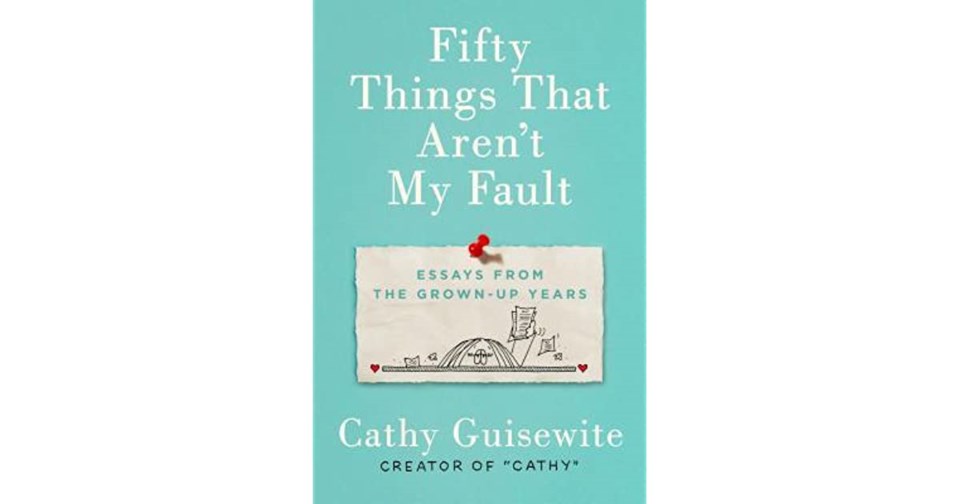Debuting in 1976, Cathy was one of the first daily comic strips penned by a woman. Cathy Guisewite drew from her own life to create the title character, a single career woman frazzled by fad diets, work woes, and a non-committal boyfriend. The cartoon ran in hundreds of newspapers for over thirty years.
Fifty Things that aren't my fault: essays from the grown-up years (2019) find Guisewite still struggling with the “four basic guilt groups” -- work, food, love, and relationships. But real-life Cathy is now a member of the “panini generation”, squashed between the demands of a college-age daughter and elderly parents.
In these fifty short essays, Guisewite finds the humour in modern family life. At the mall, Guisewite misses the days when mother-daughter shopping trips were a time for ‘Build-a-Bear’, not browsing for barely-there lingerie. In “Stop Trying to Upgrade Your Mother”, the author turns on the six o'clock news, leaving her 90-something parents uncertain when to eat dinner.
While the former marketing executive often reflects on shopping failures – the perfect skirt that won’t match with anything; a day-long search for the best plastic organizing bins—there’s also plenty of depth here. Guisewite clearly adores her parents, who were always meddlesome in the cartoon. In several of the essays, Guisewite writes movingly of these feisty people losing their independence, and her own sense of helplessness and loss seeing it happen.
Seen as ground-breaking in its time, Cathy’s portrayal of women has been criticized in recent years. Yet, at its peak, Cathy resonated with women navigating a confusing “post-feminist” world. As Guisewite puts it, “I was trying to live up to two role models – the homemaking Betty Crocker of my youth and the liberated [Feminine Mystique author] Betty Friedan of my future.”
Guisewite’s funny, sometimes wistful essay collection will appeal to her former fans -- and maybe even some new ones. From social media to equal rights that fall short of Seventies’ ideals, Guisewite writes of “presumptions and pressures [that] can make today’s young women more, not less, vulnerable”. In this new era of rapid social change, Guisewite’s brand of humour once again strikes a chord.
For other popular reading suggestions check out Richmond Public Library's Web site at www.yourlibrary.ca/books-we-like.
Haidee Parker O’Brien is a librarian at the Brighouse branch of the Richmond Public Library.



